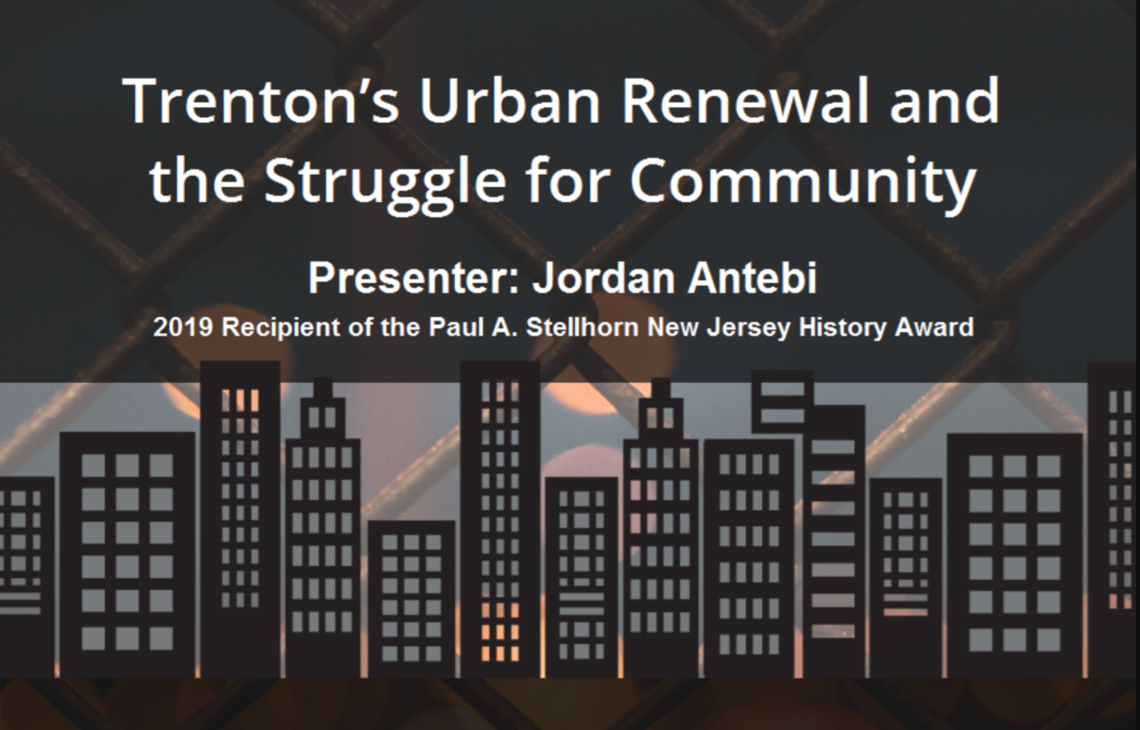Shaping Trenton’s future starts with you. Read an introduction to Trenton250.
-
Background
-
Background
-
Background
Learn more about the Plan and how it is organized
-
Master Plan Requirements
Learn about the legal requirements for the Master Plan and what Reports the City plans to write
-
Outreach Summary
Learn more out the robust public engagement effort
-
Foundational Materials
Previous studies and planning efforts
-
Consultant Teams
-
-
Citizen's Guide
-
Citizen's Guide
-
Citizen's Guide
Learn more about the Plan and how to use it
-
Frequently Asked Questions
Get answers to your most frequently asked questions
-
Listening Tour
Watch a video about the Master Planning Process
-
-
The Plan
-
The Plan
-
Vision & Guiding Principles
The community-driven vision that will guide the City through its 250th anniversary of incorporation in 2042
-
Goals
Ideal future conditions that describe how Trenton should be in 2042
-
Initiatives
A coordinated collection of Actions that are designed to achieve a Goal
-
Actions
Individual policies, projects, programs, partnerships, plans, studies, and advocacy positions
-
-
District Plans
-
District Plans
-
Downtown District
Building on strengths to create an active Downtown
-
East District
Ruilding strong neighborhoods by reinforcing the area’s urban qualities
-
North District
Revitalizing neighborhoods and attracting new industries
-
South District
Leveraging vibrancy and cultural to rebuild strong neighborhoods
-
West District
Reinforcing strong residential neighborhoods and connections to open space
-
-
Topic Reports
-
Topic Reports
-
Vision Report
A community-driven consensus vision for the City
-
Issues and Opportunities Report
Detailed list of all issues and opportunities identified throughout the master planning process
-
Circulation Report
Multi-modal transportation network; legibility; land-use and transportation connections; and access to jobs
-
Economic Development Report
Downtown development; industrial development; and neighborhood commercial development
-
Education Report
Pre-k through 12 education; workforce development; and personal enrichment
-
Environmental Report
Safe environment; natural resources and open space; climate and natural hazard resiliency; and conservation and energy efficiency
-
Housing Report
Overall housing quality; vacancy and abandonment; market-rate housing; affordable housing; and historic neighborhoods
-
Land Use Report
Land use; zoning; and redevelopment planning
-
-
Executive Summary
-
Resources
-
What's Happening
Trenton's Urban Renewal and the Struggle for Community
On June 24th, 2021, Jordan Antebi presented to the Trenton Planning Board stories from his award-winning thesis on civic actors in Trenton, NJ who opposed Urban Renewal. Jordan’s research chronicles a turbulent time locally and nationally during the 1950s and 60s. Using “documented experiences of ordinary residents and business owners,” this talk highlighted the interconnectedness of a so-called “divided” community and its protests of social engineering.
The presentation can be viewed here. Please report any issues viewing the presentation to Michael Kolber at mkolber@trentonnj.org.
About the Presenter:
Jordan Antebi was the 2019 recipient of the Paul A. Stellhorn New Jersey History Award, recognizing outstanding undergraduate scholarship and writing about a subject in the state’s history. Jordan, a lifelong New Jersey resident, received his A.B. degree in History from Princeton University cum laude in June 2019. His thesis also won the C.O. Joline Prize in American History and the Dean Hank Dobin Prize in Community Based Scholarship, as well as the Stellhorn Award.
trenton urban renewal

Most Popular
Vision & Guiding Principles
Read more about the community-driven vision for Trenton and find out how this was translated into actionable goals, initiatives, and actions.
http://trenton250.org/vision-guiding-principles